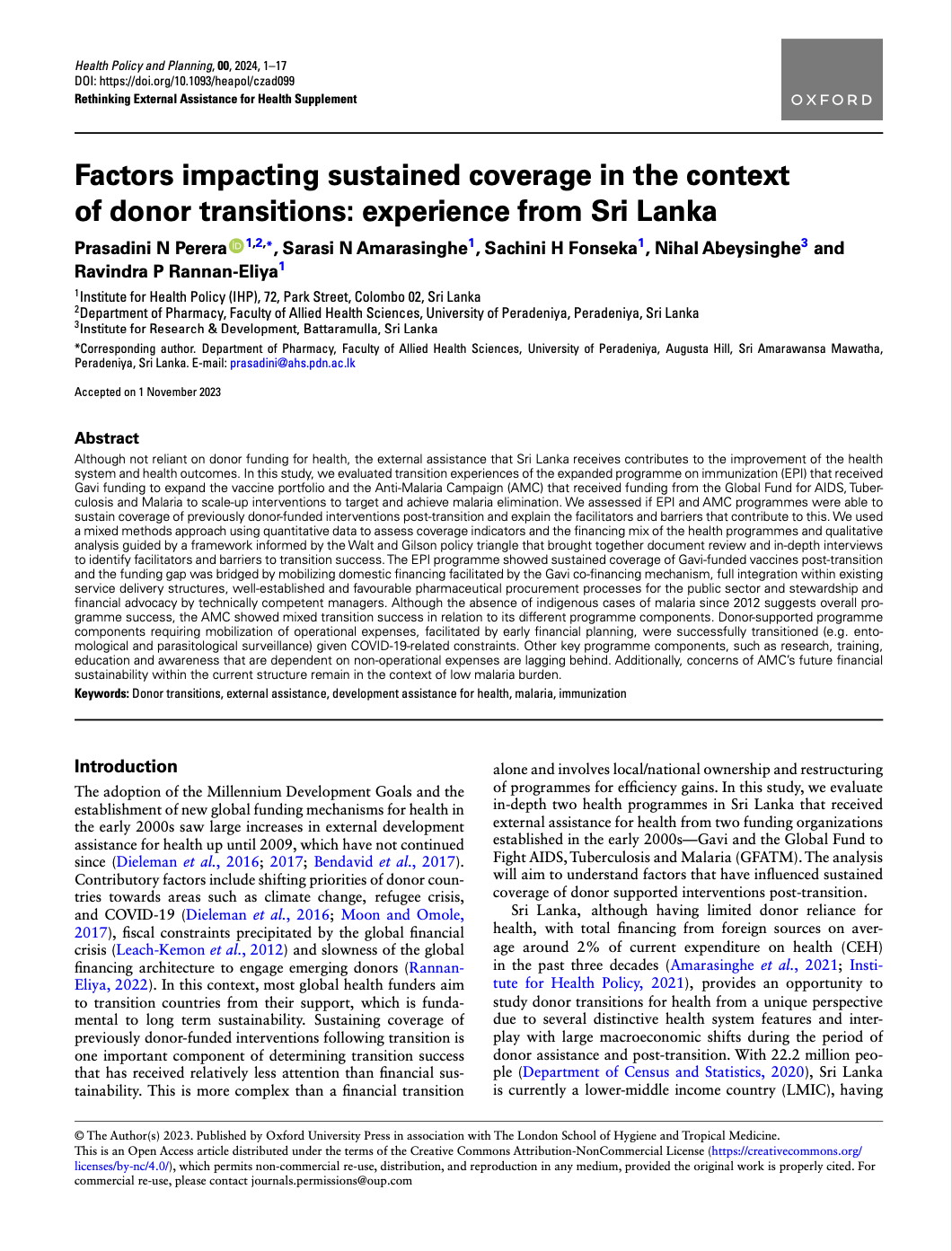Perera, P., Amarasinghe, S. A., Fonseka, S., Abeysinghe, N., & Rannan-Eliya, R. P. (2024) Factors impacting sustained coverage in the context of donor transitions: experience from Sri Lanka. Health Policy and Planning, 39(Supplement_1), i33–i49. https://doi.org/10.1093/heapol/czad099.
This article is available under the Creative Commons CC-BY-NC license.
Abstract
Although not reliant on donor funding for health, the external assistance that Sri Lanka receives contributes to the improvement of the health system and health outcomes. In this study, we evaluated transition experiences of the expanded programme on immunization (EPI) that received Gavi funding to expand the vaccine portfolio and the Anti-Malaria Campaign (AMC) that received funding from the Global Fund for AIDS, Tuberculosis and Malaria to scale-up interventions to target and achieve malaria elimination. We assessed if EPI and AMC programmes were able to sustain coverage of previously donor-funded interventions post-transition and explain the facilitators and barriers that contribute to this. We used a mixed methods approach using quantitative data to assess coverage indicators and the financing mix of the health programmes and qualitative analysis guided by a framework informed by the Walt and Gilson policy triangle that brought together document review and in-depth interviews to identify facilitators and barriers to transition success. The EPI programme showed sustained coverage of Gavi-funded vaccines post-transition and the funding gap was bridged by mobilizing domestic financing facilitated by the Gavi co-financing mechanism, full integration within existing service delivery structures, well-established and favourable pharmaceutical procurement processes for the public sector and stewardship and financial advocacy by technically competent managers. Although the absence of indigenous cases of malaria since 2012 suggests overall programme success, the AMC showed mixed transition success in relation to its different programme components. Donor-supported programme components requiring mobilization of operational expenses, facilitated by early financial planning, were successfully transitioned (e.g. entomological and parasitological surveillance) given COVID-19-related constraints. Other key programme components, such as research, training, education and awareness that are dependent on non-operational expenses are lagging behind. Additionally, concerns of AMC’s future financial sustainability within the current structure remain in the context of low malaria burden.

